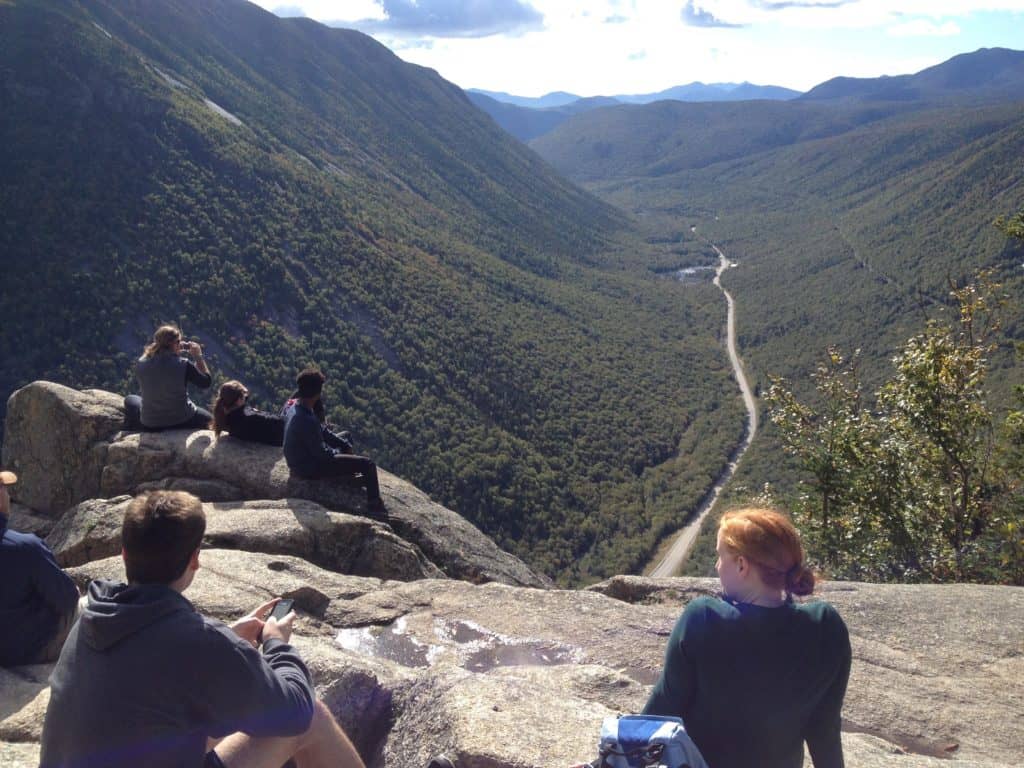Making a Difference—One Turtle at a Time
Whether researching two-foot-long hellbender salamanders in Pennsylvania or studying long-term changes in a Missouri river turtle community, Amber Pitt invites her students to join in her fieldwork adventures.
By Sophia Gourley ’19
Trinity News, Aug. 17, 2018
Assistant Professor of Environmental Science and Biology Amber Pitt grew up with a love of nature and wildlife and realized when she took a course in ecology as an undergraduate that she wanted to dedicate her life to biodiversity and conservation. “It changed everything for me,” she said. “I love what I do since I get to spend a lot of time outside and have a larger mission to work toward and teach students about; it’s about helping to save the world.”
Pitt recently took a group of students who had been studying pond ecology in the Greater Hartford area to Toronto for the annual North American Congress for Conservation Biology— “Conservation Science, Policy, & Practice: Connecting the Urban to the Wild”—to present their research. “What was shocking to people in attendance was that our students were undergraduates,” Pitt said, explaining that it is rare for undergraduates attend, much less present at, the conference, attended by more than 800 people. “The great thing about Trinity is that students can come into the college as part of the Interdisciplinary Science Program and get research experience their very first year,” she added. “That’s pretty unheard-of at larger institutions.”
 Pitt also led students on a trip to the Galapagos Islands over the summer as an extension of a field-study class she co-taught during the spring semester. Students were able to monitor the Galapagos tortoise, implement marine surveys in key areas around the islands, and test out the lessons they learned throughout the semester. Emily McLeod ’19, one of the Galapagos travelers, said, “Professor Pitt shows so much enthusiasm in her work. She is always excited to share her research with students, and it makes you want to know everything she knows. If I find something to love studying as much as she loves her amphibians, I know I will be happy.”
Pitt also led students on a trip to the Galapagos Islands over the summer as an extension of a field-study class she co-taught during the spring semester. Students were able to monitor the Galapagos tortoise, implement marine surveys in key areas around the islands, and test out the lessons they learned throughout the semester. Emily McLeod ’19, one of the Galapagos travelers, said, “Professor Pitt shows so much enthusiasm in her work. She is always excited to share her research with students, and it makes you want to know everything she knows. If I find something to love studying as much as she loves her amphibians, I know I will be happy.”
In addition to high-level major classes, Pitt teaches “Global Perspectives in Biodiversity and Conservation,” a Community Learning Initiative (CLI) course designed for nonmajor students. Students go out into the Greater Hartford area and partner with community groups—such as Connecticut River Conservancy or Friends of Pope Park—to conduct projects related to biodiversity and conservation. Students have planted native flora to help support local pollinator species, eradicated invasive species, and cleaned up litter. As a capstone to this course, students research topics related to their projects and share a poster presentation of their findings with the community partners and the Trinity community. Pitt said she ultimately wants to show students in this class that, although they might not be working toward a degree in environmental science, they are able to make the world around them a better place. “By having students actually get out into the community and engage in activities that improve the planet and their surroundings,” said Pitt, “they see that they can make a real difference.”
Header image by Ron Goellner
